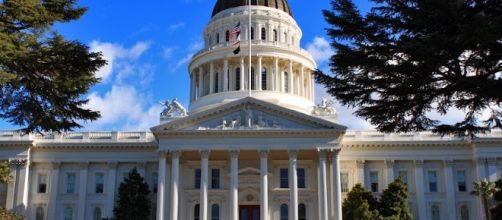The Washington Free Beacon is reporting that anti-tax activists in California have gathered more than enough signatures to place a recall vote on the November ballot to remove Democratic State Sen. Josh Newman from office. At issue is an increase in the gas tax and car licensing fees passed by the California state legislature to pay for an infrastructure program that has sparked a Tax Revolt that has the potential to rival the one that roiled the state’s politics in the late 1970s.
Why are the tax rebels after Newman?
Newman was elected to the California State Senate unexpectedly in 2016, replacing a term-limited Republican.
Since his election provided the Democrats a supermajority that allowed them to pass tax legislation at will without Republican votes. Thus, Newman is considered by many to be the deciding vote that passed the gas tax and car licensing increase.
The recall effort, led by a conservative radio talk show host named Carl DeMaio, has targeted Newman as a way to demonstrate to politicians in Sacramento that there are consequences for increasing taxes. The effort has garnered 84,988 signatures, over 20,000 more than is needed to put the recall on the ballot this fall. The Democrats intend to pour in resources to defend Newman’s seat should the recall effort be approved.
If Newman is removed, what happens next?
Should Newman be removed, DeMaio intends to launch a broader effort to place a repeal of the gas tax and car license fee increase on the ballot for 2018. He hopes that the tax revolt will bring out Republican and conservative voters in such numbers that the legislative and congressional elections will be affected. Should that be the case, California politics will be altered for the first time in a generation.
Would a tax revolt change California from a blue to a purple state?
California has been a problem state for the Republican Party for a generation. The last time a Republican presidential candidate won the state’s electoral votes was in 1988. Since then, Democrats have dominated statewide offices, the state legislature, and the congressional delegation.
The result of Democratic control of California has been a government dedicated to massive spending financed by high taxes. When heavy regulations, much of it motivated by environmental concerns are added, business and the middle and working class have tended to be squeezed. Many have left the state for more business-friendly venues, such as Texas and Florida. As a result, California is gradually sliding toward a fiscal train wreck where it just cannot raise the money it needs to finance the spending it desires. A GOP resurgence could help stem that process, at least slow it down.


